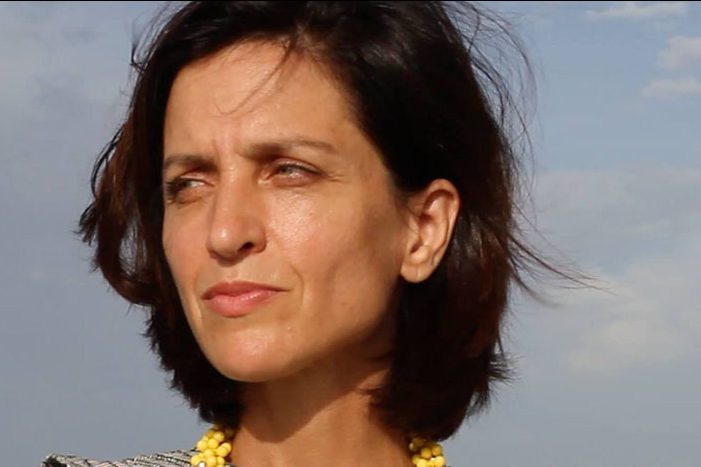While the United States government did not restore diplomatic ties with Cuba until 2015, the island nation with a fascinating history has been of interest for Jacqueline Loss since the beginning of her academic career.
Loss is professor of Latin American literary and cultural studies at the University of Connecticut in the Department of Literatures, Cultures & Languages and an internationally published researcher and lecturer. She is the author of two books and dozens of articles and book chapters and a co-editor of a volume of essays and another volume of short stories.
Her book, “Dreaming in Russian: The Cuban Soviet Imaginary,” delves into the previously unexplored world of Cubans’ memorialization of the Soviets who had subsidized the island nation and imported Soviet culture for approximately three decades.
During her research for that project, Loss says that the concept of the Spanish word “fino” would frequently come up. She would hear that the Soviets’ lack of it contributed to their feeling that the “Soviets weren’t like us (Cubans).” And she left wanting to know what “fino” really meant to Cubans, which is the topic of her current project.
Loss’s “FINOTYPE” project focuses on exploring how Cubans from multiple generations and walks of life, both in Cuba and those who have settled elsewhere, define “fino.” One major element of the project is a documentary film in which Loss interviews Cubans and Cuban Americans about their personal understanding of the term. “FINOTYPE” is dedicated to a close friend of Loss and her co-director Juan Carlos Alom, Armando Suárez-Cobián, a Cuban writer, actor and dialectic coach, whose writing Loss has had the pleasure of teaching to her students on occasion.
“While (fino) is a way of being, we often overlook it,” Loss says. “I’m studying Cubans’ relationship to it, along with the historical dimensions that are proper to thinking through this aesthetic/ethical category, but on a universal level, visions of refinement, fineness, authenticity, and purity influence how we — humans everywhere — live our lives and how we see ourselves and others.”
A quick search will yield several translations of “fino” including “fine,” “pure,” “suave,” “refined” or “ladylike.” Fino is a concept and way of being that is ingrained in many Hispanic cultures.
Loss says what initially made her want to focus on “fino” among Cubans rather than other peoples from the Caribbean and Latin America is the extent to which the revolutionary government attempted to equalize lifestyles. She feels that through studying this category, she can better elucidate the convergence of the postcolonial and post-Soviet experiences.
As the daughter of a first-generation American Jewish mother of Austrian descent and an American Jewish father whose mother was Russian and father was raised on a Connecticut farm, Loss states that growing up, she knew her parents loved each other passionately. She witnessed playful, yet profound tensions that, even as a child, she attributed to their different visions of refinement. She says her mother inhabited the role of the “refined” one in the relationship, while her father was “crasser” and “cruder.”
“(Fino) can be as productive as detrimental, when it becomes a principal prism through which people view the world or impose that view on others” says Loss.
She adds that one of the things she wanted to do with this project is dismantle simplified notions of “fino.”
“That’s something we in the humanities can do – break up congealed truths,” Loss says.
The multimedia website associated with the “FINOTYPE” project shows disparate images of things people have identified as “fino” including porcelain dishware, a Poland Spring water bottle, a lace handkerchief, and large leaves.

Throughout the various pieces of the project, Loss incorporates a flurry of both personal and professional influences including family, friends, and scholarship, some of which she read long ago and has been floating in the back of her mind since graduate school.
Loss, who previously won funding through UConn’s Scholarship Facilitation Fund for the project, is currently running a crowdfunding campaign to support the completion of filming and post-production costs. Greenhouse Studios—Scholarly Communications Design at UConn has also been instrumental in helping Loss consider innovative ways to produce this and other scholarly projects.
Loss is a full professor of Latin American literary and cultural studies at the University of Connecticut, and began teaching here in 2000. She received her bachelor’s degree from Boston University in 1993. She went on to graduate school at the University of Texas Austin where she received her master’s in 1995 and then her PhD in comparative literature in 2000. Loss’s areas of expertise include Latin American and cultural studies, Cuba, and comparative approaches. She is a member of the advisory board for “Cuba Counterpoints,” “Revista de Estudios Hispánicos,”and “Cubanabooks.” She received a Cuban Studies Program Development Grant in 2016. She serves as the director of graduate studies for UConn’s Department of Literatures, Cultures & Languages. She is a member of the Caribbean Initiative Coordinating Committee at UConn and completed her term as head of the Cuban and Cuban Disaporic MLA Discussion Group of in 2017.



